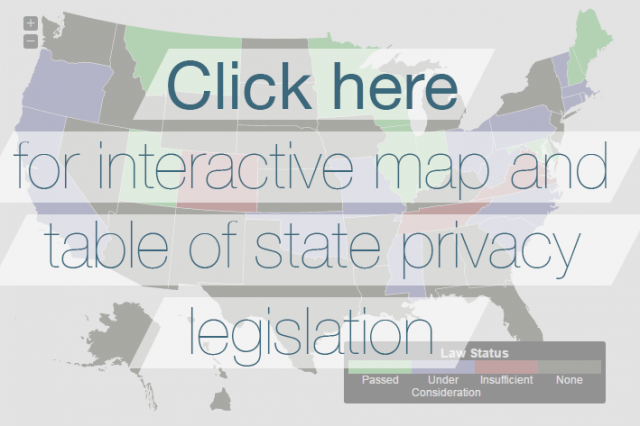Another State Taking On Privacy Legislation
By Alex Schneider
New Hampshire joins eight other states that have restricted warrantless access to electronic device location data
 New Hampshire on Monday became the ninth state to enact legislation reigning in warrantless law enforcement access to location records generated by cell phones and other electronic devices, joining Indiana, Illinois, Maine, Maryland, Minnesota, Montana, Wisconsin, and Utah.
New Hampshire on Monday became the ninth state to enact legislation reigning in warrantless law enforcement access to location records generated by cell phones and other electronic devices, joining Indiana, Illinois, Maine, Maryland, Minnesota, Montana, Wisconsin, and Utah.
Location records show where you are and have been, based on communications between your mobile device and the nearest cellular tower, and other electronic location tracking techniques such as GPS. The New Hampshire legislation prohibits the government from obtaining “location information from an electronic device without a warrant issued by a judge based on probable cause and on a case-by-case basis.” Officials who violate the terms of the act will be subject to criminal penalties.
An individual’s current and past whereabouts are some of the most sensitive – and telling – data points collected by commonly used electronic devices today. The data can identify an individual’s schedule, preferences, and associates. It is highly personal, because everywhere you go, your cell phone goes as well. And now that more than 90 percent of American adults own a cell phone, the government can monitor the majority of Americans without much cost or effort, so strong legal protection is necessary. Given the wealth of sensitive information available and the potential for misuse, we think government access to location records ought to be overseen by a judge who makes an individualized determination of probable cause before law enforcement can gain access to the records.
Legislative Fixes
Currently, federal law does not require law enforcement or government officials to obtain a warrant prior to accessing individual location records. The New Hampshire law and the other state laws cannot bind the FBI and other federal law enforcement officials due to preemption. Rep. Chaffetz (R-UT) and Sen. Wyden (D-OR) have introduced the GPS Act (H.R. 491, S. 237), legislation that would provide uniformity and extend location privacy protection nationwide, binding both state and federal law enforcement.
In the states, we’re tracking 15 bills: 14 full location privacy laws that cover current and past location information, and 1 real-time location privacy law, protecting the privacy of an individual’s current or real-time location, but not records about their location in the past. CDT has developed a comprehensive map and table detailing these ongoing legislative efforts to enhance location privacy rights.


